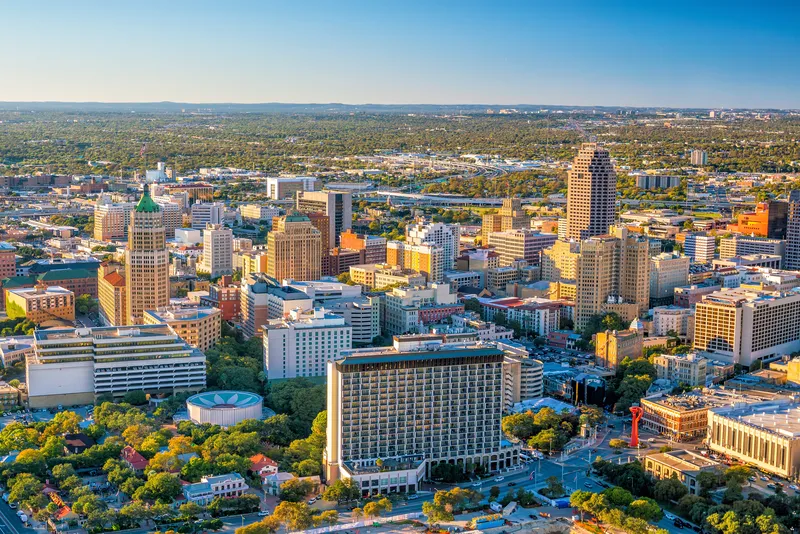In an effort to inform Missourians on the current status and future direction of their transportation system, Missouri Department of Transportation (MoDOT) has issued the Citizen’s Guide to Transportation Funding to explain where the money comes from and where it is spent. It also includes a calculator so people can figure out their monthly costs for transportation taxes and fees.
Missouri ranks 47th nationally in revenue per mile, primarily because it has the nation’s seventh largest road system with 33
December 15, 2016
Read time: 2 mins
In an effort to inform Missourians on the current status and future direction of their transportation system, 1773 Missouri Department of Transportation (MoDOT) has issued the Citizen’s Guide to Transportation Funding to explain where the money comes from and where it is spent. It also includes a calculator so people can figure out their monthly costs for transportation taxes and fees.
Missouri ranks 47th nationally in revenue per mile, primarily because it has the nation’s seventh largest road system with 33,873 miles of highways, which is funded with one of the lowest fuel taxes in the country: 17 cents per gallon.
Missouri also ranks sixth nationally in the number of bridges with 10,394. This does not include the city and county system of roads and bridges, which includes an additional 97,000 miles of county roads and city streets and nearly 14,000 bridges.
Missouri’s transportation revenue totalled almost US$2.5 billion in fiscal year 2016. Nearly two-thirds of the revenue came from state user fees and one-third from federal revenue. A small fraction of funds came from Missouri’s General Revenue Fund, which receives revenue from the state income tax and the state’s general sales tax.
MoDOT does not receive the entire US$2.5 billion of transportation revenue, or the US$30 per month from the average Missouri driver. After allocations to cities, counties, other state agencies and debt payment, MoDOT received US$1.4 billion of transportation revenues in fiscal year 2016 to invest in the state transportation system. That equates to about $17 of the $30 per month Missouri drivers are paying.
Cities and counties in Missouri receive a share of state and federal transportation revenues for projects of their choosing. In fiscal year 2016, that totalled US$408 million – US$270 million in state funds and US$138 million in federal funds.
Over the last 20 years, due to inflation and ever-improving vehicle fuel economy, the purchasing power of Missouri’s state fuel tax has effectively dropped from 17 cents to 8 cents during a time when the cost of the primary road and bridge building materials of asphalt, concrete and steel have doubled. Labour costs have also significantly risen during that time frame.
Missouri’s revenue per mile is US$50,766, while the national average is US$216,533.
Missouri ranks 47th nationally in revenue per mile, primarily because it has the nation’s seventh largest road system with 33,873 miles of highways, which is funded with one of the lowest fuel taxes in the country: 17 cents per gallon.
Missouri also ranks sixth nationally in the number of bridges with 10,394. This does not include the city and county system of roads and bridges, which includes an additional 97,000 miles of county roads and city streets and nearly 14,000 bridges.
Missouri’s transportation revenue totalled almost US$2.5 billion in fiscal year 2016. Nearly two-thirds of the revenue came from state user fees and one-third from federal revenue. A small fraction of funds came from Missouri’s General Revenue Fund, which receives revenue from the state income tax and the state’s general sales tax.
MoDOT does not receive the entire US$2.5 billion of transportation revenue, or the US$30 per month from the average Missouri driver. After allocations to cities, counties, other state agencies and debt payment, MoDOT received US$1.4 billion of transportation revenues in fiscal year 2016 to invest in the state transportation system. That equates to about $17 of the $30 per month Missouri drivers are paying.
Cities and counties in Missouri receive a share of state and federal transportation revenues for projects of their choosing. In fiscal year 2016, that totalled US$408 million – US$270 million in state funds and US$138 million in federal funds.
Over the last 20 years, due to inflation and ever-improving vehicle fuel economy, the purchasing power of Missouri’s state fuel tax has effectively dropped from 17 cents to 8 cents during a time when the cost of the primary road and bridge building materials of asphalt, concrete and steel have doubled. Labour costs have also significantly risen during that time frame.
Missouri’s revenue per mile is US$50,766, while the national average is US$216,533.








